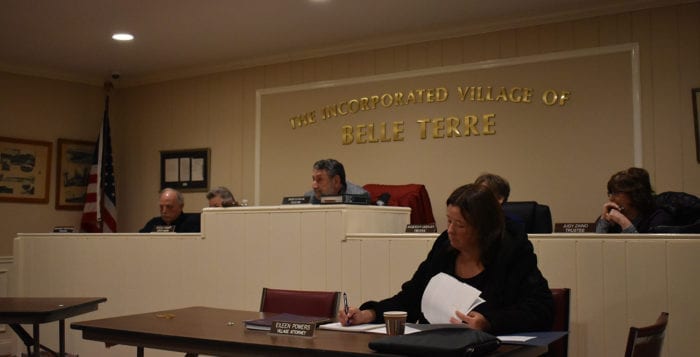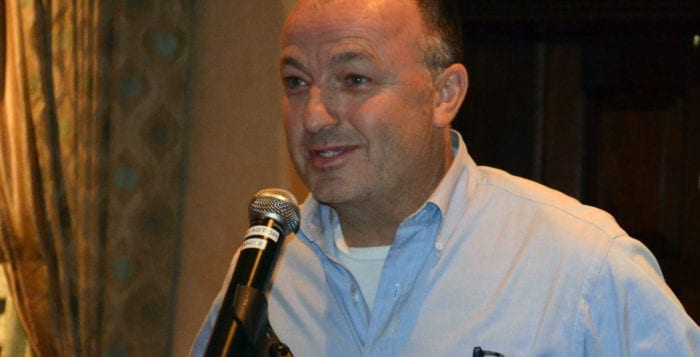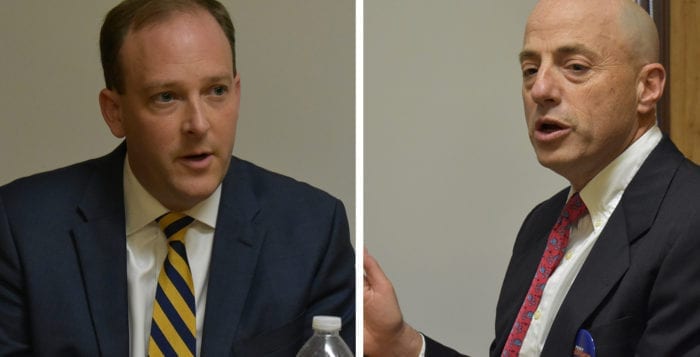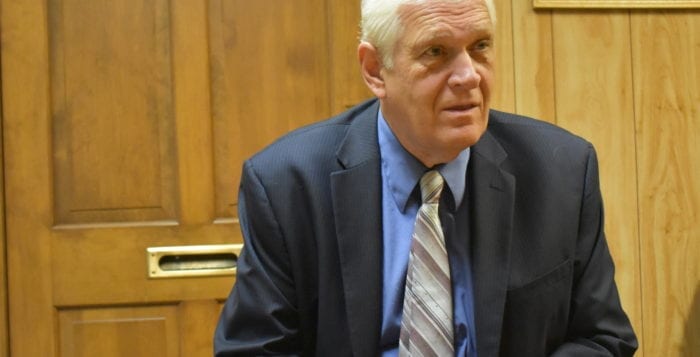The late June Democratic debates hosted by CNBC could have been the first true coal mine canary, telling us that even more than a year out, the race for the White House is going to be a long, complicated and grueling affair.

Over two nights, the 20 candidates stood shoulder to shoulder, shouting over each other for attention and sound bites. Though it was talked well enough on every national media outlet, finding North Shore residents who watched the debates, let alone had a full opinion on the Democratic candidates, can be a chore.
However, for Suffolk County and the Suffolk Democratic Committee, it’s business as usual. According to Rich Schaffer, the county Democratic chairman, the focus starts with the local races long before any attention is applied to the congressional candidates, let alone the presidential contenders.
“You won’t get them energized this year until we finish with the local races, so our main focus will be on the town and county races,” Schaffer said. “We had minimal interest in the presidential, a couple of people calling to see about participating in a particular campaign of a particular candidate, but other than that we haven’t much.”
What’s your opinion?
Here is what a few residents from local areas thought about the current Democratic presidential candidates:
Brian Garthwaite, Port Jeff Station:
“Do I think any of the candidates that I saw talk in the last two days will go anywhere? — I hope not,’” he said. “No one really stood out to me.”
Garthwaite guessed at who would be on the final podium come 2020.
“It’s tough to say right now but if I had to guess I think it’s going to be either [Joe] Biden or [Kamala] Harris.”
Judy Cooper, West Islip:
“I’m a Democrat and I like Joe Biden, but I want to hear more about one or two of the lesser known candidates — like Pete Buttigieg and Amy Klobuchar,” she said. “I haven’t thought about a ticket yet. I watched the first night of the debate, but then got sick of it the second night. It was inconsequential the second night. The first night there were many candidates, but they seemed to be more substantial candidates.”
Peggy S., Northport:
“I’m a Democrat, I’ll tell you that,” she said. “I’d support anybody but a Republican. I like Mayor Pete the best.”
Anthony Alessi, Northport:
“I want anybody who can beat Trump,” Alessi said. “Kamala Harris impressed me last night. I’d love to see her beat Trump. My ideal ticket is Elizabeth Warren and Kamala Harris.”
Quotes gathered by David Luces and Leah Chiappino
In local races, the Town of Brookhaven is becoming a hotspot. Though he sees Councilwoman Valerie Cartright (D-Port Jefferson Station) as well established, Schaffer specifically looked at Cheryl Felice, who is running against Michael Loguercio (R-Ridge) for the 4th District, and Anthony Portesy, who is running for Brookhaven Highway Superintendent against Daniel Losquadro (R), specifically having a good shot considering people’s complaints with the state of their roads.
“He’s knocking on doors, and he hears a lot of complaints about the conditions of the roads and the services being provided by the highway department,” he said.
Two Democrats have already stepped up again to face U.S. Rep. Lee Zeldin (R-Shirley) in the 2020 congressional contest. Last year’s nominee Perry Gershon is again running this year, while Stony Brook resident Jack Harrington is on the sidelines, with rumors he has considered running. On July 9, Stony Brook University scientist Nancy Goroff declared she too would be running against Zeldin, setting up what may be a heated primary race mirroring the 2017-18 Suffolk primary runup.
“As a scientist, I believe in facts,” Goroff said in a release declaring her candidacy. “And it’s a fact that Washington is hurting Suffolk families. I’m running for Congress to use my experience as a scientist to combat global warming, make healthcare affordable, protect a woman’s right to choose and end the gun violence epidemic.”
The Democratic chairman said the committee has been hands-off when it comes to congressional campaigns, letting them hire their own staff and leaving them to their own campaigns. Despite the constant attention paid to national politics, he said he expected the usual number of voters, comparing it to last year’s 22,240 primary votes out of a possible 143,700.
“It was a little more animated than past years, but on par for where it’s been, 15 to 20 percent turnout,” he said. “It’s definitely going to be animated next year, that’s for sure.”
But to Schaffer, the national race will come down to around five or six candidates, and only then will you see the public become energized around their chosen individual. The next Democratic debate, set for July 17, may be a major tipping point. Politico has reported many Democratic presidential campaigns said they believe the next set of debates could start the culling to the top contenders.
The biggest point on the national and congressional stage is whether he feels they can defeat Zeldin and Trump. If Schaffer had to choose a candidate at this moment, it would be past Vice President Joe Biden, saying he “was part of the successful years of the Obama presidency,” and “if we’re looking for someone who can take on Trump and not just convince Democrats but those ‘persuadables’, I think Biden has the best shot.”

The Democratic chairman sees Suffolk’s population as more conservatively minded than what may be seen in New York City or other progressive hot spots.
This is despite the rise of more progressive candidates such as Kamala Harris and Elizabeth Warren, with Harris’ poll numbers, in particular, surging after the CNBC debates, but Schaffer said what’s important is defeating the incumbents.
“If we win, we win as a party. If we lose, we lose as a party,” he said.


















